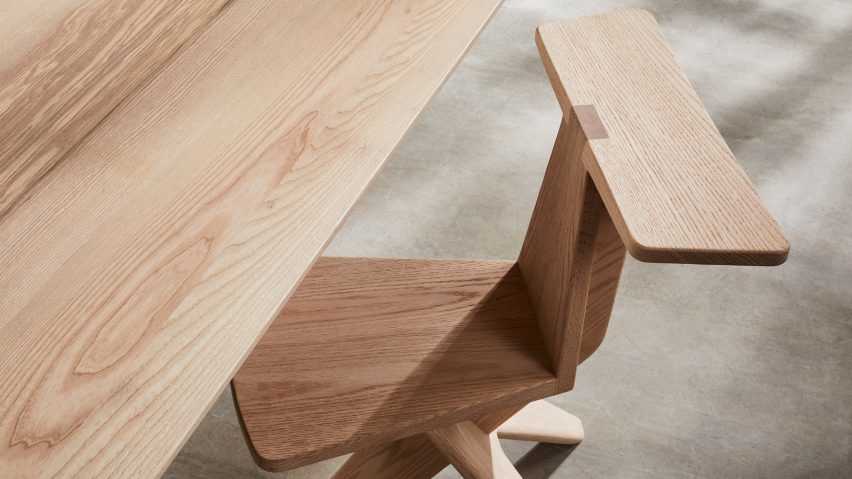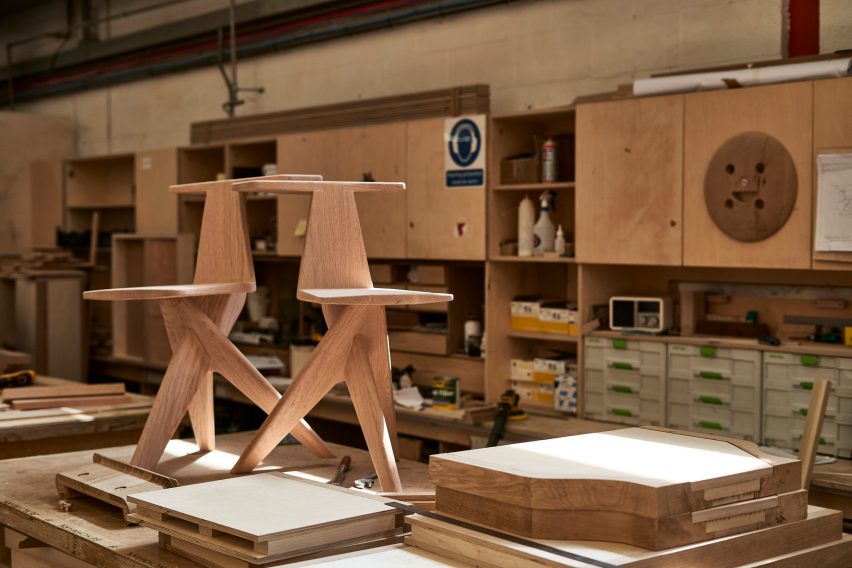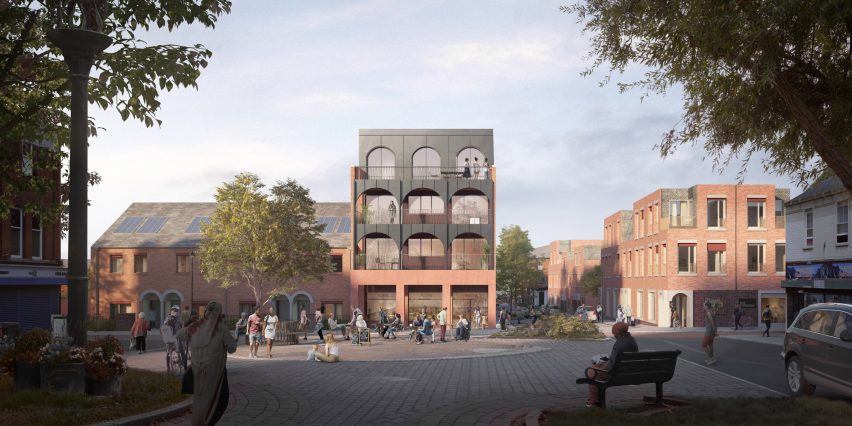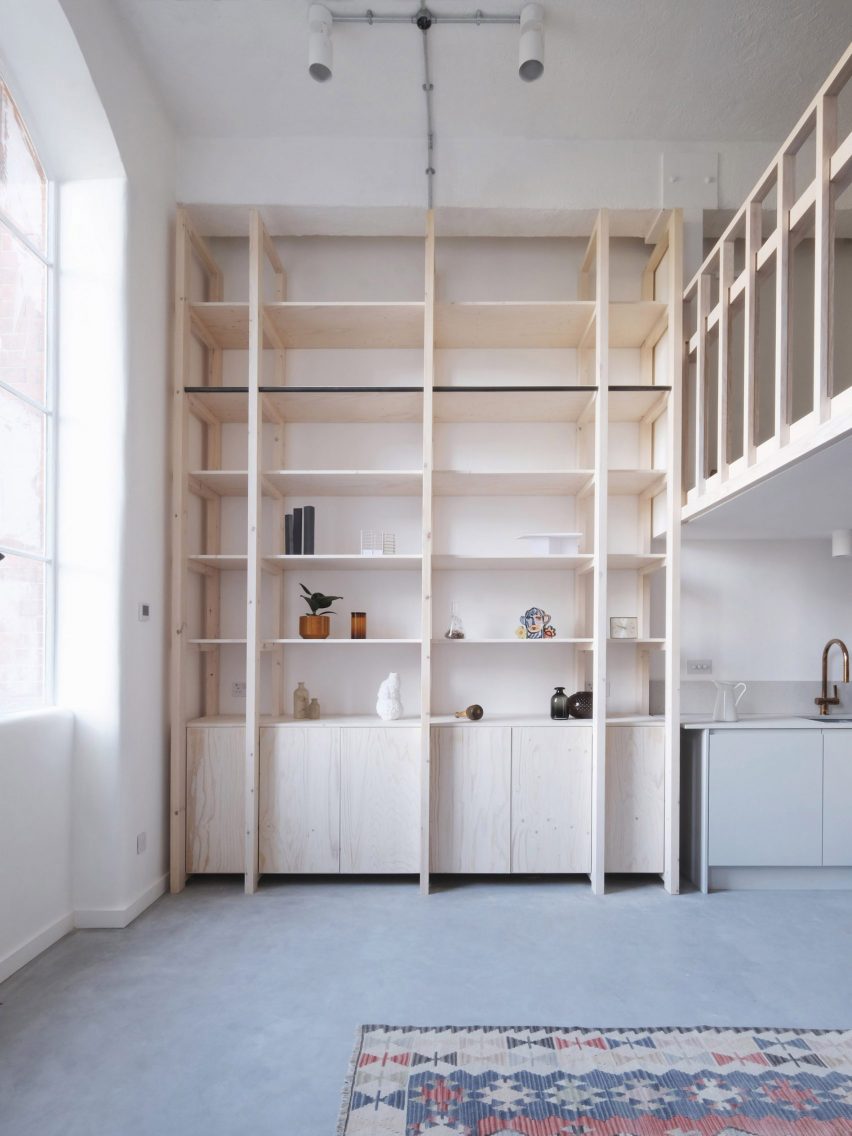
"Timber prices going up daily" in Europe due to Ukraine war
European architects and designers are struggling to source wood for their projects as Russia's invasion of Ukraine has brought imports from the region to a standstill, threatening stocks and driving up prices across the continent.
Studios are reporting that costs for solid oak and birch plywood have doubled in the last few months, while others have seen the price of structural timber go up by around 20 per cent.
"Everyone is really worried about their supply chains," said Sean Sutcliffe, co-founder of British furniture maker Benchmark. "We have projects where it would now cost me more to buy the wood than I'm charging for the whole thing."

Birch plywood is "just not available anymore", Sutcliffe said. And solid oak is soon to follow suit, according to Signe Bindslev Henriksen of Danish design studio Space Copenhagen.
"It's almost like gold at the moment," she told Dezeen. "Everybody is using up all their stock. Suppliers and manufacturers can deliver right now but in just a few months' time, it'll be all gone."
Meredith Bowles of Mole Architects said the shortage has already affected several of the practice's projects, with timber-frame contractors pulling out or refusing to set material costs in advance as "timber prices are going up daily".
Half of EU timber imports come from Russia, Belarus and Ukraine
Following Russia's invasion of Ukraine, the EU and the UK banned the import of wood from Russia as part of a growing package of sanctions against products including steel and cement, which are now rapidly increasing in price.
The EU also applied these sanctions to Russia's ally Belarus.
Taken together, Russia, Belarus and Ukraine accounted for nearly a quarter of the worldwide lumber trade and 53 per cent of the EU's timber imports in 2021.

Although most of these imports go to the Baltic states, as well as Germany and Finland, architects and designers say the knock-on effects are being felt across Europe.
"We didn't actually buy any Ukrainian or Russian wood," said Sutcliffe. "But of course, all the people that did are now crowded into Western Europe, which is where our supply chain comes from."
Supply issues aggravated by oil crisis, pandemic and Brexit
The war is also causing oil and gas prices to reach record highs, which increases the cost associated with heat treating, drying and transporting the timber.
This is compounding existing supply chain issues and associated price increases caused by the coronavirus pandemic and Brexit in the UK.
"The whole geopolitical sphere is changing so rapidly and it's making everything a bit more difficult," said south London furniture maker Jan Hendzel.
"Everything that we use to create our timber products is either unavailable, scarce or we're not sure when it's coming back into stock."
This includes local olive ash and birch plywood, of which Hendzel's supplier now sells only a set number of sheets a day to conserve stock, but also other materials like industry-standard glue from American company Titebond.
As a result, many studios are now looking at alternative sources of timber, with Benchmark making all new products presented at Clerkenwell Design Week last month from local ash and abundant American red oak.
Space Copenhagen also switched European for American oak in an interiors project the studio is working on with BIG in New York.
"We were supposed to have furniture pieces made from oak by Danish company Dinesen but their earliest delivery time is next year," said co-founder Bindslev Henriksen. "Since we're opening at the end of this year, that's not really going to work."
Architects forced to adapt, delay or cancel projects
In the UK, Mole Architects had to redesign an entire timber-framed housing scheme for the Milton Keynes District Council as a "good old concrete and brick block" due to issues around timber pricing and sourcing, as well as larger problems around insuring wooden buildings.
"It's a massive disappointment to us," said principal Bowles. "We try to persuade people that they should always do something about lowering their embodied carbon as well as their energy use. And we thought we'd got somewhere with this as it's a big project and a local authority."
Others, including architecture firms Out of the Valley and EBBA Architects, have seen their projects delayed or cancelled entirely.

"Some projects aren't even happening because we're not able to get materials at the prices that we used to be able to get," said EBBA Architects founder Benni Allan.
"The cost of joinery production has doubled in some cases, which means that clients have had to pull back on what they wanted to do or just hold off. All parts of the process are becoming more expensive."
But this disruption could ultimately have a positive impact, according to Out of the Valley founder Rupert McKelvie, much like forecasters predicted that the coronavirus pandemic could help to trigger more sustainable consumption patterns.
"These kinds of global challenges highlight the finite nature of natural resources," he said. "The world simply can't keep it up. So any slowdown in productivity is perhaps a good thing."